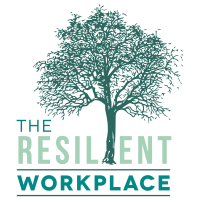The importance of diversity in the workplace
The importance of diversity in the workplace for resilience
One of the key ways to build a resilient workplace is through innovation and new ways of thinking. It is well known that the ability to adapt to change and devise new ways of overcoming challenges is key to the success of an organisation. Diversity within the workforce is essential to unlocking these skills. A diverse workforce is able to experiment, invent, and come up with new solutions, all of which are crucial to driving business growth and innovative thinking.
However, it is lesser known that diversity in the workplace goes beyond the representation of women or ethnic minorities. It is equally as important to have diversity of thought in order to improve resilience. Employing staff who are neurodiverse can improve adaptability and overall progress.
Neurodiversity refers to the diversity of human brains, and it is only relatively recently that it has begun to be seen as beneficial in the workplace. Differences in cognitive functioning can provide skills that we often see sought after in job descriptions, such as the possession of ‘a different mindset’, the ability to ‘look at things in a different way’, and ‘challenge established ways of thinking’. Such skillsets can be hugely beneficial to the functioning of an organisation, and are often possessed by people who are neurodiverse.
Neurodiverse is an umbrella term, used to refer to those whose brains are ‘wired’ differently. Neurodiversity includes neurological disorders such as dyslexia, autism, dyspraxia and ADHD. People with neurodiversity think differently to neurotypicals, and it is not unusual for this difference of thinking to result in creativity and innovation. For example, Elon Musk has revealed he has Aspergers and Steve Jobs may ave been Autistic.
Neurodivergent employees can introduce a unique skill or question existing processes, hence improving efficiency and risk management, and increasing creativity and productivity. With that being said, there’s little understanding around neurological diversity, and therefore it is yet to be considered a necessity in the workplace. In fact, most workplaces are not set up to encourage diversity of thinking.
And it’s not just the workplace that is unwelcoming to people with neurodiversity; recruitment processes often exclude neurodiverse candidates. Applicants are usually hired on the basis that their skills align with the prospective employer’s. However, applicants who have skills the employer doesn’t already possess may actually be able to add more to the collective ability of the organisation.
With that being said, there are companies out there who actively seek neurodiverse candidates. For example, insurance company Direct Line has over 140 staff members in its ‘Neuro Diversity Network’. Direct Line celebrates neurodivergence. The company has held a number of awareness talks focused on the topic in order to improve understanding of the challenges neurodivergent employees face, offer information on how to provide support and explain the benefits of having a neurodiverse workforce. Other ways Direct Line champions a neurodiverse workforce include raising awareness internally, encouraging neurological disorders to be seen as a creative advantage; altering their working environment to adapt to the needs of their team; and using a sympathetic recruitment process where those with neurodiverse conditions are tested in a less traditional manner.
Other companies who have embraced the benefits of neurodiversity in the workplace include Deutsche Bank, who have an internship programme aimed specifically at autistic graduates, and Goldman Sachs, whose Neurodiversity Hiring Initiative provides internships for people who identify as neurodiverse.
So yes, equality of opportunity has certainly improved in recent years, but there is still more that can be done. Employment rates among neurodivergent individuals are low, and businesses should be inspired to help change this, given the importance of diversity of thought to a resilient workplace.
It can be difficult for those who are neurotypical to understand what it’s like to be neurodivergent, so educating the workforce and tackling biases is crucial. While expanding the diversity of your workforce may require making adjustments to the working environment, the new skills and perspectives that neurodivergent employees bring are invaluable for improving resilience.
Many companies feel the cost of these adjustments is prohibitive but the average cost is less than £900 and anytime the individual themselves has their own items they could use e.g. noise cancelling headphones. In any case the costs benefits far outweigh the costs resulting in less time off, reduced staff churn and an increase in productivity and innovation brought to the business by talent that think differently.


